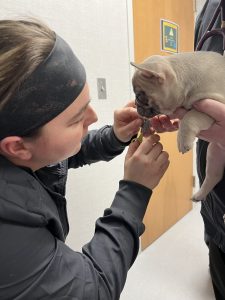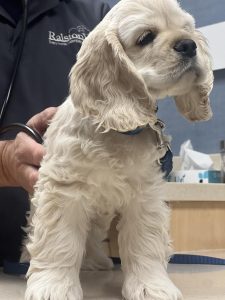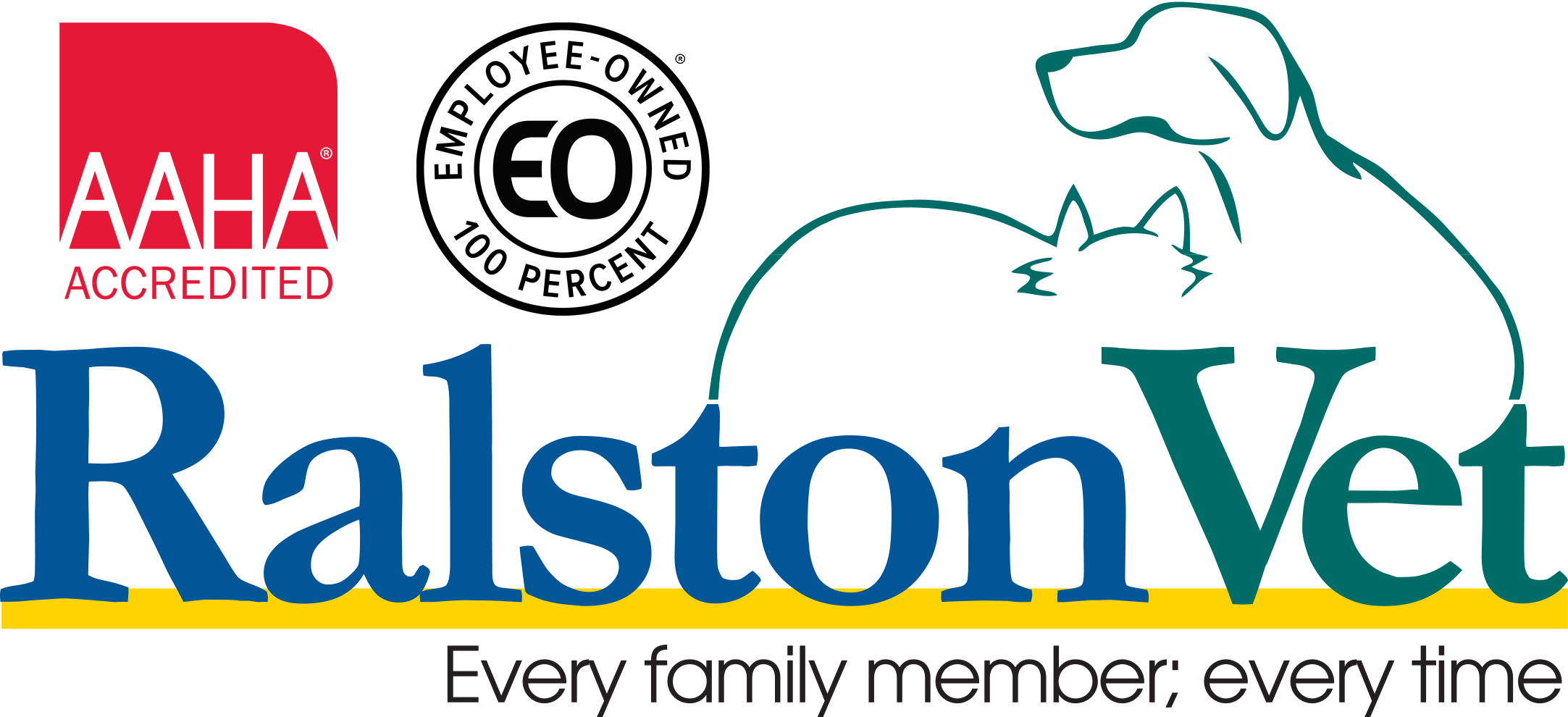 Vaccinations
Vaccinations
Vaccinations are crucial for preventing many serious diseases that could harm your pet. Even if your pet stays indoors, they can still be exposed to viruses through the air, dust, or clothing. Vaccinating is an affordable way to safeguard your pet from costly treatments or even death.
Vaccinations usually start at around six weeks of age and require boosters every three to four weeks until around 16 to 18 weeks. This builds antibodies in your pet’s blood, which helps protect them from infections. Once your pet receives all the necessary booster vaccinations, yearly examinations and boosters are necessary to protect them for life.
Some of the core vaccines include:
– Rabies: Rabies virus is a severe neurological condition that can be fatal to both pets and humans. The vaccine is recommended for all dogs and should be given every one to three years.
– Distemper virus: This virus results in systemic illness with signs of seizures or neurological signs, fever, respiratory (pneumonia), and eye changes. The vaccine is a recommended core vaccine for all dogs and should also be given every one to three years.
– Parainfluenza: This virus causes respiratory infections ranging from rhinitis to pneumonia. The infection spreads through aerosolized secretions of infected pets. This vaccine is a recommended core vaccine for all dogs and should be given every one to three years.
– Adenovirus: Also called Infectious Hepatitis, this virus causes severe systemic disease. The virus spreads through infected pets or obtained in the environment. This vaccine is a recommended core vaccine for all dogs and should be given every one to three years.
– Parvovirus: This virus affects rapidly dividing cells (bone marrow, intestinal cells, immune cells) resulting in fever, suppressed immune system, vomiting, and bloody diarrhea. The virus is present in the environment, which is where our pets can become infected. This vaccine is a recommended core vaccine for all dogs and should be given every one to three years.
-Leptospirosis is a bacterial disease that can be found in most animals, including wildlife such as skunks, deer, raccoons, rats, opossums, and livestock. It is passed via urine into water sources. The bacteria can be present in stagnant surface water, moist soil, ponds, and lakes, which is where your dog may become infected with Leptospirosis by drinking, swimming, or walking in these infected areas. Leptospirosis can cause acute kidney and liver failure and result in severe illness and even death. This bacteria can be transmitted to humans. This vaccine is a recommended core vaccine for all dogs and should be given annually after proper initial boosters.
Bordetella is a bacterial infection that causes upper respiratory infections. Dogs that come in contact with other dogs at groomers, pet stores, dog parks, boarding, or daycare should be vaccinated. This vaccine is recommended for all dogs that have increased exposure to infection.
The vaccination schedule is as follows:
 6th to 8th week vaccinations
6th to 8th week vaccinations
Complete Physical Exam
Distemper Virus
Parvo Virus
Hepatitis/ Adenovirus
Parainfluenza
Bordetella *
Fecal Exam
10th to 12th week vaccinations
Complete Physical Exam
Distemper Virus
Parvo Virus
Hepatitis/ Adenovirus
Parainfluenza
Leptospirosis*
Fecal Exam
14th to 16th week vaccinations
Complete Physical Exam
Distemper Virus
Parvo Virus
Hepatitis/ Adenovirus
Parainfluenza
Leptospirosis*
Rabies
Annual Boosters
Complete Physical Exam
Distemper Virus
Parvo Virus
Hepatitis/ Adenovirus
Parainfluenza
Leptospirosis*
Rabies
Bordetella *
Heartworm test
Fecal Exam
Health Assessment blood work
*Our doctors and staff will discuss lifestyles and risk factors for each of your pets.
Parasites
Intestinal Parasites, such as Hookworms and Roundworms, are common and found in stool. If not treated, your puppy can get very sick. These worms are easy to treat and prevent. Routine deworming as a puppy, along with a yearly examination of a stool sample, is recommended to evaluate if your dog has these intestinal parasites. Due to intermittent shedding, all parasites may not be detected on routine stool exams. Hookworms and Roundworms are zoonotic, meaning people can get them from their pet or their environment. This is easily prevented by simple hygiene procedures such as washing your hands and picking up stool promptly. This reduces the likelihood of parasites spreading in the environment.
Heartworm
Heartworms are a major concern for both indoor and outdoor dogs. Year-round prevention is recommended for all dogs and cats. Infection spreads through mosquitoes, and even a small number of adult worms can cause severe disease in dogs. Heartworm infection can lead to respiratory distress, and heart, kidney, or liver failure.
Flea and Tick Prevention
Fleas and ticks commonly carry many infectious diseases that can cause illness in your pet. It is recommended to use flea and tick prevention year-round to protect your pet from transmission of these diseases. Your veterinarian or staff member can help you determine which product is best for your puppy.
Pet Insurance
Pet Insurance is a wise investment for pet owners who want to ensure their furry friends get the best possible health care. It can help protect your pet from unexpected accidents or illnesses and provide financial assistance for routine checkups, vaccinations, and even emergency surgeries. With pet insurance, you can rest assured that your pet’s health and well-being are taken care of without breaking the bank. Some pet insurance policies even offer coverage for alternative treatments like acupuncture or chiropractic care. When considering pet insurance, be sure to compare policies and read the fine print to choose the best plan for you and your pet’s needs. Please follow the link to help you find the best insurance for your pet. https://www.pawlicy.com/
 Care Plan
Care Plan
Recognizing the importance of making preventive care more accessible, we are pleased to offer Preventive Care Plans! These plans cater to pets at every life stage, from playful puppies & curious kittens to wise senior companions. By opting for our Care Plans, you can enjoy the convenience of affordable monthly payments, eliminating the stress of a hefty one-time expense. This way, you can work with our team to ensure your pets receive the best preventive care they need for a healthy and happy life! Our goal is to keep financial considerations from standing in the way of your family’s well-being. Follow this link for more information! https://ralstonvet.com/care-plans-dog/
Spaying the Female
Spaying consists of surgical removal of the ovaries and uterus. Spaying provides several advantages such as prevention of pregnancy, elimination of heat cycles, and elimination of behavioral changes. As female dogs get older there is an increased incidence of breast cancer and uterine infection if they are not spayed. Discuss with your veterinarian what age is recommended for spaying your dog. As a general guideline, it is recommended to be performed after 6 months of age.
Neutering the Male
Neutering involves the surgical removal of the testicles. Neutering may help discourage aggression, hyperactivity, marking, roaming, and fighting. Neutering your male dog will eliminate the risk of testicular cancer and infection, as well as certain prostatic problems. Discuss with your veterinarian what age is recommended for neutering your dog. As a general guideline, it is recommended to be performed after 6 months of age.
Microchipping
Microchipping your dog is a simple and effective way to ensure that they can be identified and returned to you if they ever get lost. A microchip is a tiny device, about the size of a grain of rice, that is implanted under your dog’s skin. It contains a unique identification number that can be read with a scanner. If your dog is ever lost and taken to a shelter or veterinarian, they can scan the microchip to retrieve your contact information and get your dog back to you quickly and safely. It’s important to keep your contact information up to date with the microchip company to ensure that you can be reached if your dog is found. Microchipping is a safe and painless procedure that can be done by your veterinarian during a routine visit. It’s a small investment that can provide peace of mind and ensure that your furry friend is always protected. Follow the link for more information. https://ralstonvet.com/microchipping/
 Knowing your Breed
Knowing your Breed
Size, energy demands, predispositions, grooming requirements, and possibly city ordinance laws are things to consider with your puppy. The size of a dog will generally determine a dog’s strength. Some dogs have high energy needs and may seem a bit crazy. They can get “naughty” when not challenged or provided with enough stimulation. Unfortunately, a dog is not just a dog. Some breeds are prone to certain conditions and it will be helpful to be more aware of these as your puppy becomes older.
There is a list of breeds that have a few extra rules and regulations depending on where you live. We will be able to provide you with more information if needed.
Restraint
It is recommended to do restraint exercises with your puppy. These exercises will get your puppy used to doing routine grooming and health needs at home. Laying them on their sides is the easiest and most common way to restrain your puppy. It is also important to desensitize your pet to touching their nails/paws, ears, and mouth.
Housebreaking
Consistency is key to housebreaking your puppy. By relieving outside, your puppy earns “free time” in the house. By alternating free time with confinement (either in a kennel or a small room, etc.) the puppy learns the appropriate time and place to potty.
– Choose the desired location and teach the puppy where to go. Ensure that the location is practical and easy to access.
– Be consistent with this location (i.e. backyard).
– Go out with your puppy every time and enthusiastically praise elimination in the desired area.
– Maintain a consistent schedule by offering food 2-3 times a day at the same time. Only leave the food down for 20 minutes or until the puppy walks away.
– Take up the water bowl about 1-2 hours before bedtime.
– Confine and supervise (small room or crate). Until the puppy has completed four consecutive weeks without soiling in the home, it should be within the eyesight of a family member or confined to a safe puppy-proof area. The area chosen for confinement is intended to serve as a safe, comfortable bed or den for the puppy. Do NOT use this area for discipline. The puppy should not be confined to this area until after it has been eliminated and has had sufficient exercise and social interaction.
 Common handling mistakes:
Common handling mistakes:
The goal is to interrupt your puppy if it is caught in the act of eliminating indoors and direct it to the appropriate area so that it can be rewarded when it is eliminated there. If urine or stool is found on the floor after the puppy has been eliminated, do not consider any form of correction since the puppy will not associate the correction with the elimination. Rubbing their noses in it will NOT work.
The training process may seem like “tough love” but your puppy must be trained quickly and effectively.
Oral Hygiene
It is enormously important that you pay attention to the condition of your dog’s teeth and gums, not just from the perspective of comfort and eating but because there is a definite link between oral hygiene, your animal’s immune system, and the long-term health of organs such as the heart, kidneys, and liver.
Start a regular teeth cleaning routine as soon as your puppy is comfortable in its new home.
– Start by wrapping a small piece of cloth or gauze around your finger and wet it with warm water or even chicken broth.
– Hold the puppy’s mouth and start rubbing gently on the outside surfaces, don’t forget the front teeth.
– This massaging action may even feel good to your teething puppy.
– Permanent teeth should start to emerge at 3-7 months.
– Once your puppy is used to the routine of rubbing the teeth with your finger you can try to graduate to a soft bristle brush or a finger brush with toothpaste made specifically for dogs.
– Human toothpaste should not be used. For more information click here. https://ralstonvet.com/dental-care/
In most cases, a dog’s teeth should be professionally cleaned once or twice a year. The need for a professional cleaning can be assessed at your yearly preventive care exam. By routinely cleaning your dog’s teeth at home, at least 3 times a week, professional cleaning may need to be done less often.
If you have any other questions or concerns feel free to call us at 402-331-6322 during business hours. You can ask to speak with a technician and they should be able to assist you. Congrats and good luck with your new puppy!
